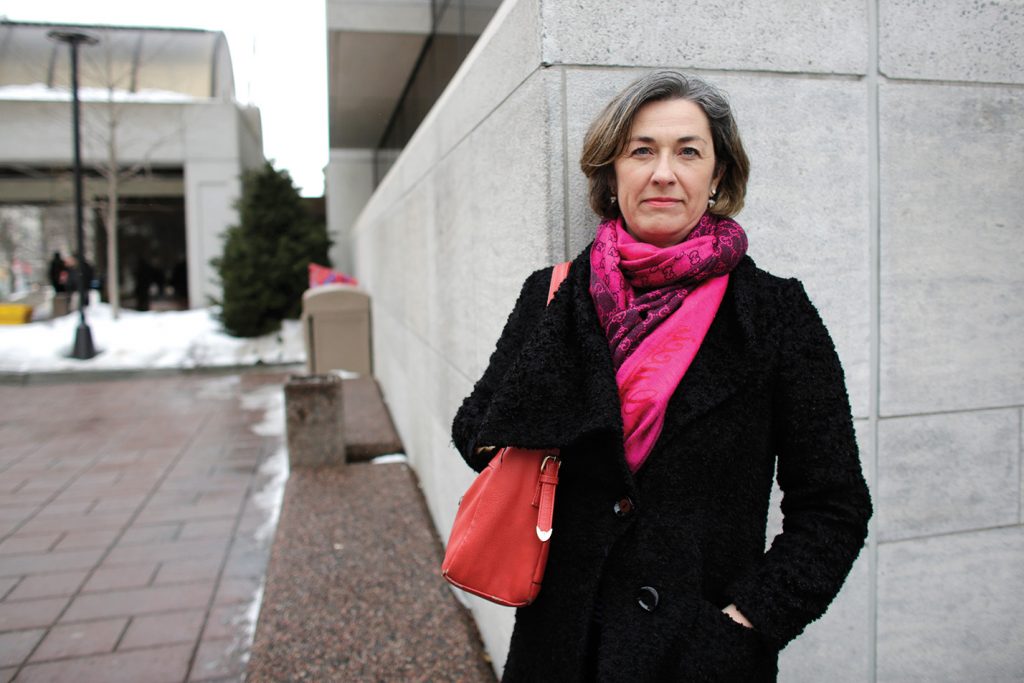Civil trials delayed
By Kat Topinka
Ottawa’s courts are struggling to keep up with both civil and criminal cases because there are simply not enough judges available, a situation the Canadian Bar Association has blamed on delays in judicial appointments by the federal government.
Currently, 43 federal-level judicial vacancies are forcing trial dates, some set years earlier, to be postponed.
The seriousness of this issue was brought to the forefront in November, when Adam Picard, charged with first-degree murder, walked out of the Elgin Street courthouse a free man.
His case was stayed on the grounds that his right to a trial within a “reasonable” amount of time had been infringed.
Picard had waited in jail for four years.
Now, in a move meant to speed up the hearing of criminal cases, civil trial dates are unavailable until April 2019.
With another 12 judges scheduled to retire in February, the weight of thousands of backlogged cases doesn’t look like it will be lifted anytime soon.
According to Anne London-Weinstein, president of the Defence Counsel Association of Ottawa, the delay in appointing judges is the result of a good idea at a bad time.
“When this new Liberal government took over, they created a new process of appointment that would be more transparent so that we wouldn’t see political appointments,” she said. “But in coming up with time to put that together, we have a number of vacancies that just haven’t been filled.”
The reformed appointment process was implemented by Justice Minister Jody Wilson-Raybould in October, in order to establish judicial advisory committees to select jurors based on merit and to collect and publish information on those applying for judicial office.
According to Valerie Gervais, spokesperson for the minister, the new measures were “aimed at reinforcing public confidence through openness, increased transparency and accountability, and by promoting diversity and gender balance on the bench.”
The reformulation is certainly a laudable objective but it must be tackled with a little more haste, said London-Weinstein.
Ottawa medical malpractice lawyer Andrea Girones couldn’t agree more.
“The delays are just hurting ordinary people from having their cases resolved and there’s no reason for it,” she said. “They could appoint more judges, they could get this show on the road, but the federal government wants to revamp the process, and in trying to revamp the process they’ve basically stalled it. They can’t keep up.”
Girones should know. If all had gone according to schedule, her client’s case would have gone to trial this February.
Instead, shortly before Christmas, she was forced to inform the parents of a disabled five-year-old that their lawsuit — seeking compensation for the brain damage and other injuries their daughter sustained due to oxygen deprivation at birth — had been put on hold indefinitely because there was no judge available to hear the case.
Girones described the experience as “extremely disappointing, discouraging, and frustrating” for her clients, who had been waiting on the trial date for 14 months already.
“They don’t have a decision, they don’t have a settlement, they don’t have any idea when this is going to resolve,” she said. “And we still don’t even have a new trial date.”
In the meantime, Gervais said Wilson-Raybould has been leading roundtable discussions across the nation to hear suggestions on how to address delays in collaboration with the provinces.
Gervais added that immediate concrete steps have been taken, including increased funding for legal aid.
“This is something that everyone should care about, in the sense that you never know when you’re going to be caught up in the justice system,” said Girones.
“Right now, maybe you aren’t involved and it doesn’t affect you,” she said, “but you could have a terrible accident tomorrow and realize how much your life it put on hold until you have your case resolved.”

